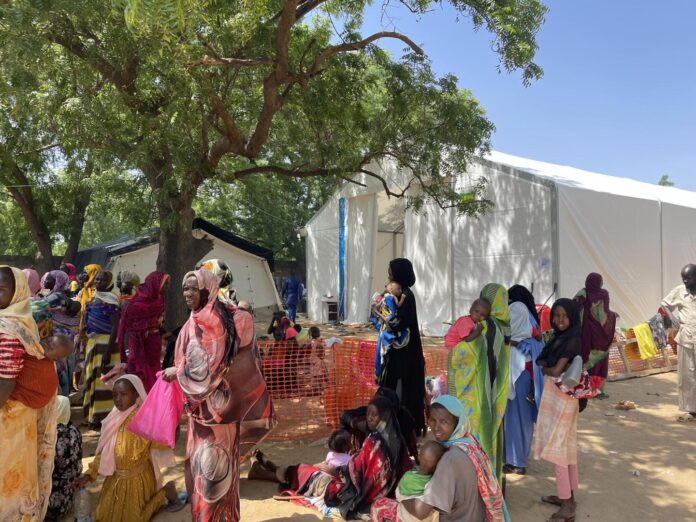The conflict in Sudan that has forced 3.4 million people to flee for safety within the country and across its borders is rapidly intensifying health threats, with cases of infectious diseases and other afflictions reported among the displaced population who have sought refuge in hard-to-reach locations, with limited health services.
Among those uprooted from their homes, nearly 760 000 have sought refuge in neighbouring Central African Republic, Chad, Egypt, Ethiopia and South Sudan, where World Health Organization (WHO) and partners are supporting national authorities to provide emergency health assistance.
In Sudan itself, the health crisis has reached gravely serious levels as more than two-thirds of hospitals remain out of service amid increasing reports of attacks on health facilities. Between 15 April and 24 July 2023, WHO verified 51 attacks on health facilities, resulting in 10 deaths and 24 injuries—and cutting off access to urgently needed care.
“The scale of the health crisis is enormous. We are working hard to step up our response, delivering critical medical and other emergency health supplies,” said Dr Nima Saeed Abid, WHO Representative in Sudan. “Although the attacks on health facilities and the widespread insecurity are compounding the challenges, we’re determined to reach those most in need and urge for increased donor support to ensure that we deliver adequately.”
Across the border in Chad, which is receiving an average of 2500 people daily—accounting for most of the people forced to flee across borders from Sudan—WHO and partner organizations have identified and treated more than 1400 trauma cases. That includes over 60 major surgeries. About 70% of the trauma cases are due to gunshot wounds. Additionally, malaria, malnutrition and cholera infections are also being reported among the displaced.
“The conflict in Sudan is triggering a health crisis that is affecting an entire region,” said Dr Jean-Bosco Ndihokubwayo, WHO Representative in Chad. “Chad alone is currently hosting more than a quarter of a million people and an equal number of people are projected to arrive in the country by the end of this year. This will significantly increase the health needs and exert huge pressure on the available health facilities.”
Cases of malaria among children under five years of age, as well as suspected cases of yellow fever have also been identified among the about 17 000 people who have sought refuge in the Central African Republic. A suspected cholera outbreak has also been reported in locations in northern Ethiopia receiving large numbers of displaced people.
The influx of more than 176 000 people into South Sudan has overstretched facilities in the northern Renk region, where an upsurge of acute watery diarrhoea among children under-five year of age is driving up mortality. There is also a significant rise in cases of severe acute malnutrition and measles among these children.
To adequately respond to the crisis, WHO in June issued an emergency appeal for US$ 145 million in June. To date, only about 10% of the funds have been received, and with little prospects of peace, the health crisis is likely to worsen.
WHO is working with partners to deliver emergency assistance swiftly. So far, it has shipped over 36 tons of supplies to Chad, where an emergency medical team has also been deployed. The Organization has also delivered emergency medical and non-medical supplies to provide care to the affected populations in Central African Republic, Egypt, Ethiopia and South Sudan. In addition, disease Surveillance is being enhanced to guide prevention and enable early detection of potential outbreaks. WHO is also providing technical support to national authorities to strengthen the emergency health response.
With scarce, overstretched and at times inexistent health facilities in the locations hosting the people fleeing the armed violence in Sudan, WHO and partners are supporting national health authorities to enhance provision of basic health services. Improving water, sanitation and hygiene services, carrying out vaccination drives, as well as strengthening infection prevention and control are some of the priority health interventions.
Dr Abid and Dr Ndihokubwayo spoke today during a virtual press briefing. They were joined by Dr Naeema Al Gasseer, WHO Representative in Egypt; Dr Dlamini Nonhlahla, WHO Representative in Ethiopia; and Dr Magdalene Armah, WHO Regional Office for Africa Incident Manager for the Sudan crisis.
Dr Patrick Otim, Health Emergency Officer, Acute Events Management Unit was also on hand from the WHO Regional Office for Africa to respond to questions.









[…] Source link […]
Comments are closed.